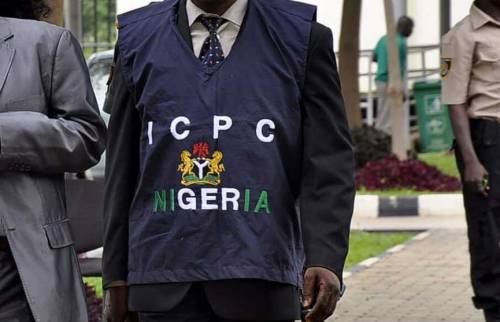The Independent Corrupt Practices Commission (ICPC) recently carried out a survey – an 84-page survey titled, ‘Nigeria Corruption Index: Report of a Pilot Survey 2020’.
According to the report of the Pilot Survey,
The total amount of money reported by the justice sector respondents as corruptly demanded, offered and paid between 2018 and 2020 was N9.457b.
The Report fingered lawyers when it stated that the corruption level in the justice sector was aggravated by “stupendously high amounts of money offered as bribes to judges by lawyers handling high electoral and political cases.”
It is interesting to note that the Survey in question was a Pilot Survey, which is simply a test survey. The alarming report gives a clear indication of what to expect from the real survey when conducted. Unfortunately, the report has further dealt a heavy blow to the integrity of some of the Judgments emanating from election petition cases.
Judiciary
Corruption in the Nigerian Judiciary is like pregnancy. It can no longer be covered with bare hands. Like a smoke, it has traveled with the air, escaping from narrow openings in windows and doors. Like a wild fire, it has engulfed the roof already, and we can all see from afar.
Sometime in October 2016, the Buhari-led Federal Government went against some judges including Justices of the Supreme Court in a Gestapo-style operation based on corruption allegations. Huge sums of money were reportedly found in cash in the homes of some of the Jurists. The natural assumption was that the cash could only be a product of bribery and corruption. The assumption is not totally misplaced because monies offered as bribes are often moved in cash in order to avoid easy tracing associated with bank transfers/lodgments. Again, the Jurists are not particularly known to be involved in any trade or business involving movement of heavy cash. However, highlighting these assumptions does not settle as support for the style of operation adopted by the Government at the time. In fact, that mode of operation remains wholly condemned. Interestingly, most of the Jurists who were victims of that raid have been set free of the corruption allegations.
Lawyers
Lawyers make good headlines when bad news is in the air. As was stated above, the ICPC in their report held lawyers responsible as the top players in judicial corruption. However, this is not precisely so. Lawyers generally do the bidding of their clients, which in this case, are politicians. The Rules of Professional Conduct require that lawyers are to execute only legitimate and lawful instructions. Thus, they cannot be totally shielded from corrupt practices. However, we must not lose sight of the real players in the corruption game – The Politicians!
Politicians
At the risk of passing the buck, some of our Politicians are the ones polluting the system because of their desperation to hyjack or retain power at all cost. Politicians control the real process of appointment of judges, notwithstanding constitutional provisions on judges’ appointment. Most times, the selection process involves high-level lobbying before the lists to be presented to the President (or Governor as the case may be) by the National Judicial Council (NJC) are drawn. Judges are appointed by the President or Governor based on the recommendation by the NJC as provided by the Constitution. However, we recall that a former Governor of Rivers State (now Minister of Transportation), Rotimi Amaechi felt otherwise sometime ago. Amaechi had appointed and sworn in his own preferred candidate for the position of the Chief Judge of the State, against the recommendation by the NJC. This development saw judicial activities grounded in the State for a couple of years. The former Governor displayed what reasonably appeared as impunity and disregard for the justice system. See a fuller report of the battle here.
In Rivers State, we saw the bravery of the NJC. It is desirable that the NJC should be empowered to continue to stand firm in the discharge of its constitutional mandate.
It has been explained elsewhere the level of importance attached to election petition cases and why this is so.
Under Nigerian Law, an election petition case is a civil action which is considered to be in a class of its own (sui generis). Given that these petitions have bearings on leadership, it is pertinent that they are decided swiftly in order to guarantee some level of stability in governance.
In view of the damming ICPC report, it appears other reasons not unconnected to bribery allegations also account for the level of seriouness associated with election petition cases.
Notable Example
Corruption in the Judiciary cannot be denied, especially when talking about the handling of election petition cases. A classic example that shows how some politicians use lawyers and judges remains the 2007 Osun State Gubernatorial Election petition case. Prince Olagunsoye Oyinola (formerly of the Peoples Democratic Party) was up against Rauf Aregbesola [of the Action Congress (AC) now All Progressives Congress (APC)] at the polls. Oyinola was returned as the winner while Aregbesola challenged the results. Justice Thomas Naron of the Plateau State High Court was the presiding Judge at the Tribunal. It was revealed that the Judge was in constant touch via telephone with Counsel to Prince Oyinola, Otunba Kunle Kalejaiye, a Senior Advocate of Nigeria (SAN). The Judge later dismissed Aregbesola’s petition and upheld the election of Prince Oyinola. The Court of Appeal later upturned the decision and declared Aregbesola the winner of the election. The NJC later sacked Justice Naron, stating that his action was contrary to the Code of Conduct for Judicial Officers under Section 292 (1) (b) of the 1999 Constitution of the Federal Republic of Nigeria (as amended).
Kunle Kalejaiye, SAN was also stripped of the rank of SAN and sanctioned by the Legal Practitioners Disciplinary Committee (LPDC) for engaging in professional misconduct.
In the build up of the 2015 elections, Prince Oyinola later dumped the PDP and joined APC where he and Aregbesola raised their hands together, holding brooms and chanting, “APC, CHANGE!”.
Interestingly, it was recently reported that while Justice Naron was left to leak his wounds, Otunba Kalejaiye SAN has since regained his SAN title after succeeding in his appeal, based on technical grounds.
Conclusion
From the ICPC’s report of the Pilot Survey, it does appear like the Judiciary has officially joined the merry-go-round corruption in our political climate – A climate where vote-buying is the order. Bullion vans move freely like Santa Claus, dropping “gift items” to well-behaved “children” and to some of our Judges at their doorsteps.
We call on our Judges to be bold and firm, upholding their judicial oath and lead the way in salvaging the nation from the claws of corruption. Our Judges should never lose sight of the primary role of the Judiciary in election cases which is to preserve our democratic process by ensuring that the wishes of the majority are legally upheld.
Featured Image Credit: Sahara Reporters














